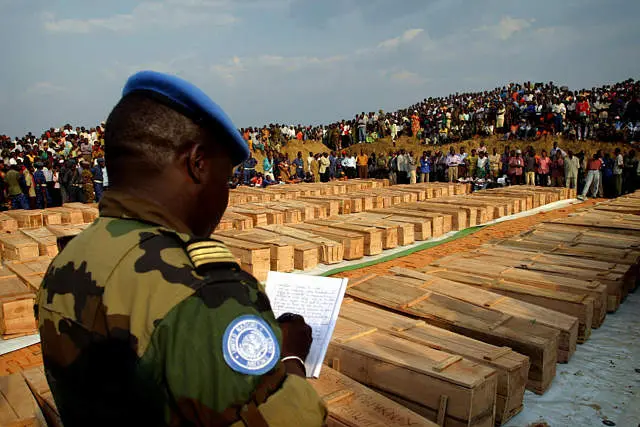Politics
The tragedy in Gatumba: a night of terror that questions peace in Central Africa

Twenty years ago, on the dark night of Gatumba, under a starless sky, a terrible tragedy unfolded.
The Front National de Libération, a rebel movement with deep roots in ethnic hatred, orchestrated a bloody massacre, taking the lives of 152 innocent Congolese civilians and leaving 106 wounded.
These victims, mostly Banyamulenge, symbolize a tragedy far greater than their simple ethnicity. This massacre was not just another act of violence in a region marked by incessant ethnic strife; it was also a point of convergence for two fragile peace processes, amplifying the already tense climate between Burundi and the Democratic Republic of Congo.
The refugee camp, which should have been a sanctuary, has been transformed into a theatre of desolation where promises of protection have collapsed.
The soldiers of the United Nations peacekeeping mission caught unawares, were unable to intervene in time, powerless witnesses to this barbarism. Similarly, the Burundian armed forces, although close to the scene of the massacre, failed in their duty to protect.
The complexity of the situation was compounded when the political leaders of the two countries involved, as well as those of the Rassemblement Congolais, pour la Démocratie (RCD-Goma), were quick to attribute the massacre to organized forces from the Congo.
This version, relayed by the international media and taken up by the United Nations, attracted worldwide attention. At the same time, the FNL claimed responsibility for the attack, arguing that the camp was harboring Banyamulenge fighters preparing offensives against the Congo, a claim that was echoed by its supporters and certain groups in the Congo.
In the months preceding that tragic night, political and ethnic tensions had intensified as the political transitions in the DRC and Burundi stalled without any significant progress. The Gatumba disaster rekindled old fears, threatening to plunge the region into a renewed cycle of violence.
Burundi’s leaders have not hesitated to play on fears of imminent genocide to justify their increasingly bellicose stance.
The Gatumba massacre, as a deliberate attack against civilians, constitutes a flagrant violation of international humanitarian law.
The Burundian government responded by issuing an arrest warrant for the FNL leaders, a first step towards bringing them to justice.
However, the need to prosecute all perpetrators remains an urgent priority to ensure that such acts do not go unpunished.
Human Rights Watch, through in-depth interviews with victims, witnesses, and authorities, compiled a detailed report that not only documents this horror but also calls for renewed vigilance and resolute action to prevent future atrocities.
This work illustrates the crucial importance of memory and justice in the quest for lasting peace









